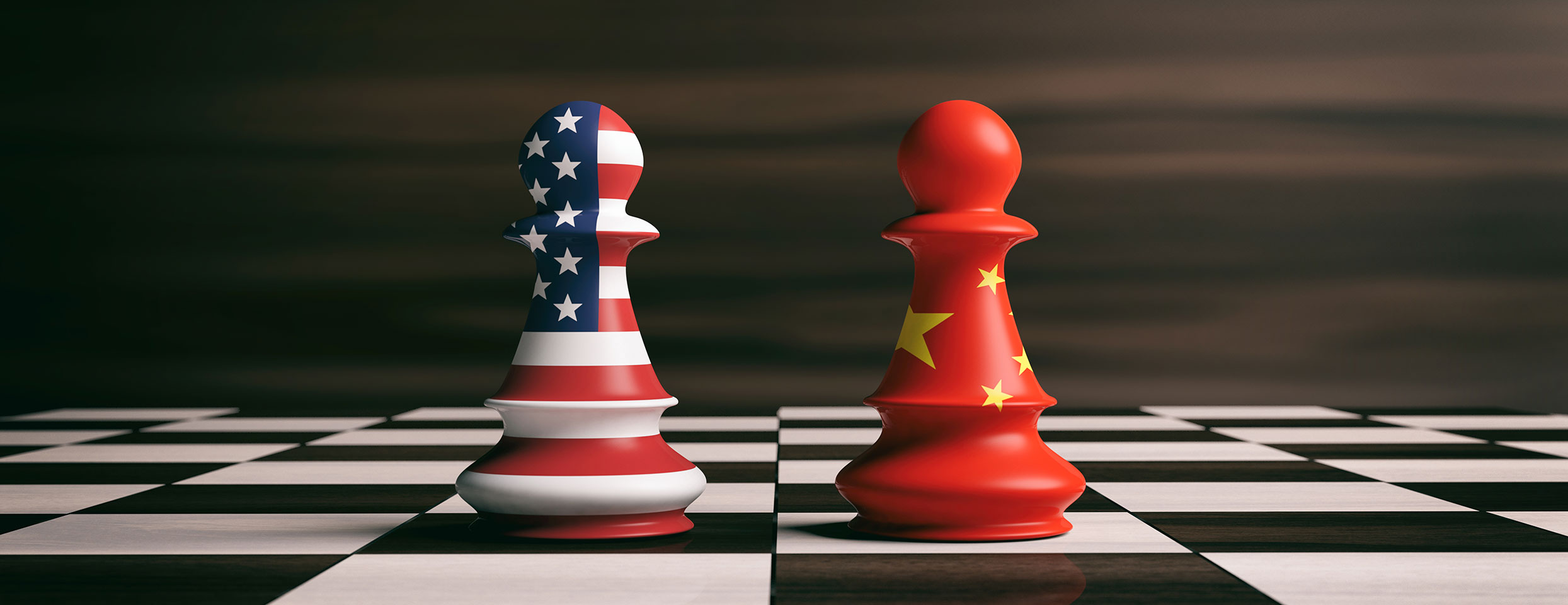The trade dispute between China and the US has sent ripples around the world. Amidst a raft of tit-for-tat tariffs, the escalating row has unnerved investors and led to fears of a protracted trade war fueling a slowdown in the global economy.
At the root of the row are American perceptions that China pursues unfair trading practices and that Chinese firms – with the backing of Beijing – have stolen US intellectual property.
Such allegations have been simmering in the US for several years, but have reached boiling point following the election of Donald Trump to the US presidency.
The dispute has strained relations between the world’s two largest economies, with both sides accusing the other of deceitfulness and failing to deliver on commitments. At a broader level it has also underscored the importance of trust in maintaining the global economic order and how easily relations can unravel.
In any negotiation situation – be it between governments or businesses – ethics plays a key role in determining success. With business relations increasingly globalised, concerns escalate among negotiating parties over whether their counterparts operate on the same ethical standards and practices.
So is it possible to judge how ethically someone is likely to behave based purely on their – and your – nationality?
In a research study with colleagues in Shanghai and Illinois, we looked at how Americans and Chinese view each other as ethical players, and how this can shape their approach to negotiations and dialogue between the two countries. We chose to focus on China and the US as this is considered the most important economic relationship in the world, but the results have lessons for any international business.
False promises
Using a series of survey-based experiments involving more than 800 adults in America and China, we found that Americans were more likely to use unethical tactics, such as false promises and inappropriate information gathering, if they thought they would negotiate with a counterpart from China. However, Chinese negotiators were less likely to use such tactics if they thought they would be engaging with an American counterpart.
Our findings show that whilst everyone has their own culture that shapes their strategy, a negotiator’s perceptions of the nationality and culture of their counterparts has a major impact as well
On the other hand, Americans and the Chinese were both more likely to behave unethically if their counterpart was from China and less likely to do so if their counterpart was American.
So in the context of negotiations between Chinese and Americans, ethically speaking the two sides move towards each other. This means the Chinese display behavior in line with their expectations that American negotiators hold higher ethical standards, while the US negotiators behave according to the view that the Chinese negotiators have less ethical standards.
But why would this be the case?
Stereotypical views
Our findings suggest that in international negotiations, a lot of decision-making comes down to the negotiator’s own preconceptions. That’s because when we negotiate with someone from another culture we tend to stereotype them and use that image to decide which tactics to employ to gain advantage.
Such stereotypical views are reinforced by rankings like Transparency International’s corruption perception index, which in 2018 put the US at 22 (relatively clean) and China at 100 (relatively corrupt) out of 180 countries.
Many people tend to assume that an individual’s approach to ethics would generally be applied uniformly across all situations. However, our findings show that whilst everyone has their own culture that shapes their strategy, a negotiator’s perceptions of the nationality and culture of their counterparts has a major impact as well.
In negotiating scenarios therefore, our ethical practices are shaped according to our perceptions of the nationality and culture of our negotiating counterparts.
Gift or bribe?
Of course, perception also affects what we deem to be ethical or not – for example, whether a payment is a generous gift or an outrageous bribe is a matter of opinion. Such debates will always be a feature of interactions where business is at stake and arguments over cultural relativism are best left for another article.
The point is that what matters is not whether our perceptions of other people’s ethical behaviour are correct; rather that we recognise that these perceptions exist and how easily they come to mind.
Negotiations across cultures inevitably bring challenges for all parties involved that they would not face when engaging with people from their own culture. Trying to reduce this by considering how the other culture is perceived is an obvious and easy solution.
The upshot of this is that however honest you are as an individual, if your country is perceived or has a reputation as behaving less ethically, your counterparts from other cultures will likely adjust their own ethics accordingly.
At a practical level, negotiators should recognise that their ethics-related behaviour is subject to change. For example, when working with Chinese counterparts, American negotiators should be cautious of their increased tendency to use ethically questionable tactics, which may lead to serious legal consequences.
Meanwhile the broader implications of this study – in the context of government-to-government negotiations – are immense, especially in a political climate where allegations of poor behaviour are easily made and even more easily spread.
If we are to resolve trade rows and avoid their globally destabilising consequences, it also offers a powerful case that a more nuanced understanding of ethical practices in different countries and cultures needs to be developed.





